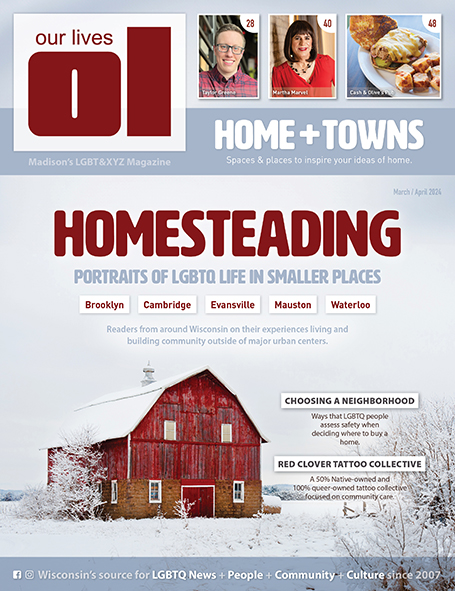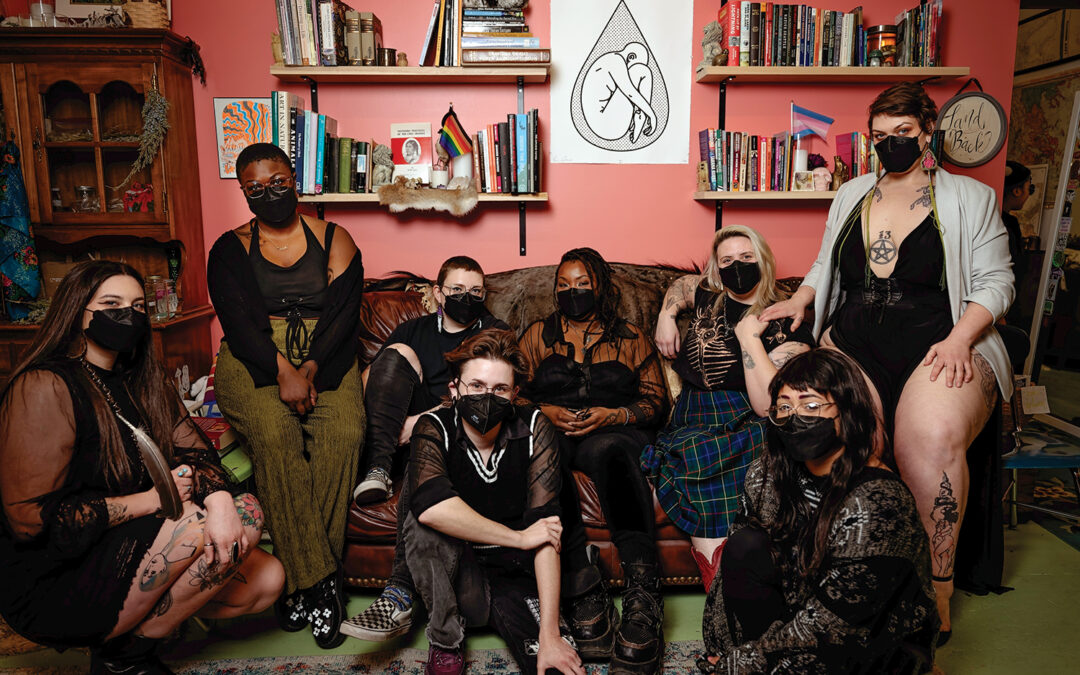How can couples best protect their rights to the house they purchase? Tamara Packard suggests specific language to use in your title.
We have all been there, or hope to go there one day soon: fall in love, dream a future, make a commitment, buy a house and build a home together. Now that summer is here, and a young couple’s attention turns to the many affordably-priced houses on the market, the time is ripe for some thoughts about protecting your plans and the largest single investment you’ll probably ever make.
Let’s start with a typical scenario: After making their commitment to love and support one another for a lifetime, a couple purchases a house in Wisconsin. Each pays half the down payment, and each contributes equally to the mortgage and maintenance of the home. Should the couple break up or when one dies, how that home is titled will matter a whole lot—or not much all—depending on whether the couple has a marriage that is recognized in Wisconsin.
If the couple’s marriage is recognized by Wisconsin law, like Jane and Frank’s, the law presumes that the property is “marital property:” each spouse has an undivided one-half ownership interest in the home. It does not matter if the title paperwork has only Frank’s name on the title, or if the title does not say that the property is “marital property.” The statutory characterization of the property, in an effort to protect the marital relationship and both people in the marriage, trumps whatever the title says (unless an exception applies). Should the couple divorce, the house, similar to the rest of their property (with some exceptions), will likely be divided 50/50. Should Frank die without a will, Jane will inherit Frank’s interest in the house and all other assets. If Frank made a will, even if he left everything to someone else, Jane gets at least half of Frank’s interest in the marital property, including the house.
If the couple is not married, or if their marriage is not recognized in Wisconsin, like Janet and Sara’s Canadian marriage, the scenario is quite different. Barring the application of equitable principles through litigation (a topic for a future column), what the title says controls how the property will be handled should the couple break up or when one dies. Here are a few possibilities:
If only Janet’s name is on the title, and the couple breaks up or Janet dies without a will, the default rule is that only Janet/her blood relatives are the owner of the house: unless Sara convinces a judge otherwise, she is nothing but a tenant who can be evicted with very little notice and no share of the equity in the house.
If the title reads only “Janet and Sara, two unmarried individuals” (an all-too-common assumption made by loan officers), the law presumes they are “tenants in common,” which means that each owns a divided 50 per cent interest in the property. While this designation ensures that if they break up, each will be entitled to half of the equity of the home, it may not protect their plans when one dies. If Janet dies without a will, Sara may find herself sharing ownership of the house with Janet’s blood relatives. If Janet’s will leaves her property to her previous partner, Sara will share ownership with the ex. But even if Janet dies willing all of her property to Sara, as tenants in common, Sara must suffer through the time-consuming process of probate before the property becomes fully hers, and in the meantime Janet’s creditors may lay claim to much of Janet’s equity in the house.
There is no way for unmarried couples to replicate all of the over-200 state and 1100 federal legal rights and responsibilities that come automatically with marriage. However, if Janet and Sara title their property as owned by “Janet and Sara as joint tenants with rights of survivorship,” they will each own an undivided 50 per cent interest in the home, like Frank and Jane. Should they break up, the equity in the house will likely be divided 50/50. If Janet dies, regardless of what her will says and even if she doesn’t have one, the house will pass instantaneously to Sara, avoiding the probate process and perhaps Janet’s creditors, and lessening the chance that a disapproving or greedy relative will interfere in the couple’s plans.
Finally, the law may soon change to give same-sex couples home ownership protections similar to those held by married couples. While a far cry from the many legal incidents of marriage, Governor Doyle’s current budget proposal includes provisions that would allow same-sex couples to register as domestic partners and receive a handful of state law-based protections, including property titling presumptions similar to those married couples have. As of press time, these provisions were expected to pass and become law very soon. If they do, and Janet and Sara register as domestic partners, in most cases Sara would inherit all of Janet’s property, including her interest in the home if Janet dies without a will, regardless of whether Sara’s name is on the title. Likewise, if both Janet and Sara are on the title, even if only as “two unmarried individuals,” the presumption would change from “tenants in common” to “joint tenants with rights of survivorship,” and Sara would avoid probate and own the home upon Janet’s death.
Regardless of whether the domestic partnership protections become law, the safest thing for same-sex couples to do if they wish their home to be treated similarly to that of married couples is to title it as “joint tenants with rights of survivorship.” Couples must also be vigilant at the closing to ensure their intentions are carried out in the final paperwork. Take it from one who has been there: don’t sign it until it is right.
























0 Comments